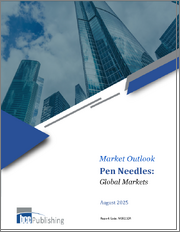
|
시장보고서
상품코드
1807929
펜니들 시장 : 제품별, 유형별, 니들 길이별, 유통 채널별, 용도별, 최종 사용자별 예측(2025-2030년)Pen Needles Market by Product, Type, Needle Length, Distribution Channels, Application, End User - Global Forecast 2025-2030 |
||||||
펜니들 시장은 2024년에 20억 3,000만 달러가 되고, 2025년에 22억 2,000만 달러, 연평균 성장률(CAGR)은 9.64%를 나타낼 것으로 예측되며 2030년에 35억 4,000만 달러에 이를 것으로 예측됩니다.
| 주요 시장 통계 | |
|---|---|
| 기준 연도 : 2024년 | 20억 3,000만 달러 |
| 추정 연도 : 2025년 | 22억 2,000만 달러 |
| 예측 연도 : 2030년 | 35억 4,000만 달러 |
| 연평균 성장률(CAGR)(%) | 9.64% |
종합 소개 핵심 촉진 요인 채택 패턴 조명 펜 니들 미래의 임상 역학 및 새로운 안전 고려 사항
소개 부분은 현재 펜 니들 미래를 정의하는 복잡한 역학을 이해하기 위한 기초를 마련합니다. 임상 도입 패턴에 대한 철저한 검토를 통해, 이 서술은 의료 전문가와 환자 모두에게 영향을 미치는 촉진 요인을 밝힙니다. 이 탐구는 안전 고려 사항이 어떻게 제품 개발 및 조달 결정을 이끄는 중추적인 힘으로 진화했는지를 드러냅니다. 이 장이 전개됨에 따라, 성능 기대치를 형성하고 개선된 환자 결과로 가는 길을 밝히는 데 있어 기술 혁신의 중요성을 강조합니다.
기술, 임상 관행, 규제 프레임워크 및 환자 선호도의 변혁적 변화 탐구 : 펜 니들 사용의 미래 형성
본 부분은 펜 니들 분야를 다각도로 재편하고 있는 변혁적 변화를 탐구합니다. 먼저 디지털 통합의 영향을 추적하며, 연결성 기능과 스마트 기기가 사용자 경험과 데이터 기반 치료를 재정의하는 방식을 살펴봅니다. 원격의료가 확대됨에 따라 펜 니들 제조업체들은 소프트웨어 개발사와 협력하여 원활한 상호운용성과 원격 모니터링 기능을 확보하고 있습니다. 결과적으로, 기존 제품 수명 주기는 환자 참여, 치료 준수율, 결과 측정을 우선시하는 가속화된 혁신 주기로 대체되고 있습니다.
2025년 도입된 미국 관세의 공급망 회복탄력성, 비용 구조 및 시장 경쟁에 대한 다층적 효과에 대한 종합 분석
2025년 미국에서 시행된 신규 관세의 집중 분석을 통해 비용 구조와 경쟁 역학에 미치는 다층적 효과가 창출되었다. 국내 제조업 강화를 목표로 도입된 이 관세는 국경을 넘는 공급망에 의존하는 다수 기업들의 원자재 비용과 물류 간접비 상승을 초래했다. 그 결과 조달 전략이 재조정되며, 제조업체들은 증가한 수입 비용으로 인한 재정적 부담을 완화하기 위해 대체 지역 공급원을 모색하고 있습니다.
펜니들의 본질적인 세분화 심층 분석, 제품별, 유형별, 니들 길이별, 유통 채널별, 용도별, 최종 사용자별 차이를 설명
펜 니들 부문의 심층 분석을 통해 제품 제공이 다양한 임상 및 상업적 요구 사항과 정교하게 부합하는 방식을 확인할 수 있습니다. 안전 펜 니들과 표준 펜 니들은 각각 별개의 위험 프로필을 해결하며, 전자는 보호 커버와 후퇴 메커니즘을 통합해 우발적 부상을 감축하는 반면, 후자는 비용 민감한 환경에서 기본 솔루션으로 계속 활용됩니다. 사용 모델 측면에서 일회용과 재사용형 펜 니들 선택은 편의성과 장기적 비용 효율성 간의 절충을 반영합니다. 재사용 시스템은 다회 투여를 통한 잠재적 비용 절감 효과를 제공하지만, 엄격한 멸균 프로토콜을 요구하여 업무 흐름과 환자 교육에 영향을 미칩니다.
지역별 인사이트 : 수요 촉진 요인, 공급망 역학 및 성장 기회 탐구 아메리카, 유럽, 중동, 아프리카, 아시아태평양 지역
지역별 인사이트는 지리적 차이가 수요 추이와 공급망 전략을 어떻게 형성하는지 조명합니다. 아메리카 지역에서는 만성 질환 유병률에 대응하기 위한 강력한 정책이 확립된 유통망과 견고한 보험급여 체계에 힘입어 펜형 주사니들 장치에 대한 꾸준한 수요를 이끌고 있습니다. 전자상거래 도입은 가정 배송 모델을 가속화하는 한편, 제조사와 약제 혜택 관리자 간의 파트너십은 처방 목록 및 가격 구조에 대한 조화를 보장합니다.
주요 펜 니들 제조업체들의 전략적 포지셔닝, 제품 혁신, 협력 및 성장 접근법을 밝히는 설득력 있는 기업 인사이트
주요 펜 니들 제조업체들은 경쟁 우위를 확보하고 제품 포트폴리오를 확장하기 위해 다각적인 전략을 추진하고 있습니다. 연구 개발에 대한 상당한 투자를 통해 미끄럼 성능을 향상시키고 환자 불편감을 감축하는 향후 코팅 기술이 개발되었습니다. 동시에 여러 기업들은 투약량 추적 및 복약 순응도 모니터링을 가능하게 하는 연결 기능을 내장하기 위해 기술 제공업체와 전략적 협력을 체결했습니다.
산업 리더를 위한 전략적 이니셔티브 실행 권고사항 펜 니들 용도 분야의 파트너십 및 혁신 투자
진화하는 펜 니들 환경에서 성공하기 위해 산업 리더들은 혁신과 운영적 엄밀성을 균형 있게 조율하는 일련의 목표 지향적 조치를 채택해야 합니다. 고급 팁 설계와 보호 메커니즘을 통한 안전성 강화가 증가하는 환자와 의료진의 기대를 충족시킬 것이며, 디지털 추적 기능 통합은 치료 순응도 향상을 위한 심층적 참여를 촉진할 것입니다. 동시에 지역 공급업체를 통한 원 다각화와 이중 공급 체계 구축은 무역 정책 변화의 영향을 완화될 것입니다.
펜 니들 연구에 적용된 데이터 수집 기법, 검증 프로세스 및 품질 보증 프로토콜을 개괄하는 포괄적 연구 방법론
본 보고서의 연구 방법론은 정확성과 관련성을 보장하기 위해 포괄적인 데이터 수집 기법과 엄격한 검증 프로세스를 결합하였습니다. 주요 인사이트는 여러 지역을 아우르는 임상 전문가, 조달 임원 및 규제 전문가와의 심층 인터뷰를 통해 수집되었습니다. 이러한 직접적인 관점은 동료 검토 과학 문헌, 기술 백서, 특허 출원 및 제품 사양에 대한 광범위한 검토로 보완되었습니다.
결론적 관점 : 핵심 발견 사항 요약, 주요 동향, 전략적 필수 과제 및 펜 니들 생태계에 참여하는 이해관계자를 위한 향후 방향
본 결론 부분은 분석을 통해 도출된 핵심 주제와 전략적 과제를 종합합니다. 안전성 향상과 인체공학적 혁신은 점진적 개선에서 경쟁 차별화의 핵심 요소로 전환되었습니다. 규제 진화는 재료 및 추적성에 대한 더 높은 기준을 지속적으로 요구하며, 관련 업체들이 공정 개선과 협력적 옹호 활동에 투자하도록 촉진하고 있습니다. 최근 무역 정책 변화의 파급 효과는 민첩한 공급망 구조와 다각화된 조달 모델의 중요성을 부각시킵니다.
목차
제1장 서문
제2장 조사 방법
제3장 주요 요약
제4장 시장 개요
제5장 시장 역학
- 블루투스 및 클라우드 기반 용량 관리 기능을 통합한 스마트 펜 니들 플랫폼의 급증
- 자가 주사 치료 시 환자 편의성을 높이는 4mm 단축형 펜 니들의 채택 증가
- 우발적 바늘 찔림 사고를 감축하기 위한 고급 차폐 기능을 갖춘 안전 설계 펜 니들의 도입
- 생분해성 소재 활용 및 재활용 이니셔티브를 통한 친환경 펜 니들 설계에 주력하는 경향 증대
- 연결형 치료 생태계 구축을 위한 펜 니들 제조사와 디지털 헬스 기업 간 협력 관계 형성
- 개발도상국 시장의 비용에 민감한 당뇨병 환자층을 대상으로 한 경제적인 펜 니들 구독 서비스 확대
- 소아 환자의 정밀 인슐린 투여를 위한 초미세 게이지 펜 니들 출시를 촉진하는 규제 승인
- 실시간 모니터링 및 AI 기반 용량 권장사항 제공을 위한 펜 니들 내 스마트 센서 통합
제6장 시장 인사이트
- Porter's Five Forces 분석
- PESTEL 분석
제7장 미국 관세의 누적 영향(2025년)
제8장 펜니들 시장 : 제품별
- 세이프티 펜니들
- 표준 펜니들
제9장 펜니들 시장 : 유형별
- 일회용
- 재사용 가능
제10장 펜니들 시장 : 니들 길이별
- 10mm
- 12mm
- 4mm
- 5mm
- 6mm
- 8mm
제11장 펜니들 시장 : 유통 채널별
- 병원 약국
- 온라인 플랫폼
- 소매 약국
제12장 펜니들 시장 : 용도별
- 글루카곤 유사 펩티드-1 요법
- 호르몬 대체 요법
- 인슐린 투여
제13장 펜니들 시장 : 최종 사용자별
- 외래수술센터(ASC)
- 클리닉
- 병원
제14장 아메리카의 펜니들 시장
- 미국
- 캐나다
- 멕시코
- 브라질
- 아르헨티나
제15장 유럽, 중동 및 아프리카의 펜니들 시장
- 영국
- 독일
- 프랑스
- 러시아
- 이탈리아
- 스페인
- 아랍에미리트(UAE)
- 사우디아라비아
- 남아프리카
- 덴마크
- 네덜란드
- 카타르
- 핀란드
- 스웨덴
- 나이지리아
- 이집트
- 튀르키예
- 이스라엘
- 노르웨이
- 폴란드
- 스위스
제16장 아시아태평양의 펜니들 시장
- 중국
- 인도
- 일본
- 호주
- 한국
- 인도네시아
- 태국
- 필리핀
- 말레이시아
- 싱가포르
- 베트남
- 대만
제17장 경쟁 구도
- 시장 점유율 분석(2024년)
- FPNV 포지셔닝 매트릭스(2024년)
- 경쟁 분석
- AdvaCare Pharma
- Advocate by Pharma Supply, Inc.
- Allison Medical, Inc.
- ARKRAY, Inc.
- Ayset Health Services
- B. Braun SE
- Becton, Dickinson and Company
- Berpu Medical Technology Co., Ltd.
- Cardinal Health, Inc.
- F. Hoffmann-La Roche Ltd.
- Gan & Lee Pharmaceuticals Co., Ltd.
- GlucoRx Ltd.
- Hindustan Syringes & Medical Devices Ltd.
- IME-DC GmbH
- Jiangsu Micsafe Medical Technology Co., Ltd.
- Jinan Babio Biotechnology Co., Ltd.
- Lepu Medical Technology(Beijing) Co., Ltd.
- Medexel Co., Ltd.
- Medical Technology and Devices SpA
- MEDISEC Healthcare
- Montmed Inc.
- Narang Medical Limited
- Neon Diagnostics Ltd.
- Nipro Corporation
- Novo Nordisk A/S
- Owen Mumford Limited
- Promisemed Medical Devices Inc.
- Shanghai Berpu Medical Co., Ltd
- Shanghai Kindly Enterprise Development Group
- Sol-Millennium
- Spirit Healthcare Pty Ltd.
- Terumo Corporation
- Trividia Health, Inc.
- UltiMed, Inc.
- Van Heek Medical
- Vitrex Medical A/S
- Vogt Medical Vertrieb GmbH
- Ypsomed Holding AG
- Zibo Sunrise Medical Co., Ltd.
제18장 리서치 AI
제19장 리서치 통계
제20장 리서치 컨택
제21장 리서치 기사
제22장 부록
HBR 25.09.22The Pen Needles Market was valued at USD 2.03 billion in 2024 and is projected to grow to USD 2.22 billion in 2025, with a CAGR of 9.64%, reaching USD 3.54 billion by 2030.
| KEY MARKET STATISTICS | |
|---|---|
| Base Year [2024] | USD 2.03 billion |
| Estimated Year [2025] | USD 2.22 billion |
| Forecast Year [2030] | USD 3.54 billion |
| CAGR (%) | 9.64% |
Comprehensive Introduction Illuminating Core Drivers Adoption Patterns Clinical Dynamics and Emerging Safety Considerations in the Pen Needle Landscape
The introductory section lays the foundation for understanding the complex dynamics that define the current pen needle environment. Through a thorough examination of clinical adoption patterns, the narrative unveils the driving factors influencing both healthcare professionals and patients. This exploration reveals how safety considerations have evolved into a pivotal force guiding product development and procurement decisions. As the chapter unfolds, it underscores the significance of technological innovation in shaping performance expectations and illuminating pathways to improved patient outcomes.
Furthermore, the introduction highlights the interplay between end-user requirements and regulatory standards. It examines how heightened scrutiny around needle safety, combined with the imperative to reduce needlestick injuries, has spurred manufacturers to embrace advanced materials and design enhancements. Against this backdrop, evolving healthcare delivery models and telehealth initiatives have accelerated demand for user-friendly devices that support self-administration. By capturing these emerging trends, the introduction not only contextualizes the subsequent analysis but also underscores the urgency for stakeholders to align product portfolios with the shifting priorities of clinicians, payers, and patients.
Exploration of Transformative Shifts in Technology Clinical Practices Regulatory Frameworks and Patient Preferences Shaping the Future of Pen Needle Use
This section explores the transformative shifts that are reshaping the pen needle sphere on multiple fronts. It begins by tracing the impact of digital integration, where connectivity features and smart devices are redefining user experience and data-driven care. As telemedicine expands, pen needle manufacturers are collaborating with software developers to ensure seamless interoperability and remote monitoring capabilities. Consequently, traditional product lifecycles are giving way to accelerated innovation cycles that prioritize patient engagement, treatment adherence, and outcome measurement.
In parallel, regulatory evolution is playing a central role. Stricter guidelines on materials, sterilization processes, and waste management are compelling industry participants to refine manufacturing techniques and strengthen traceability. Meanwhile, patient preferences have pivoted toward minimally invasive solutions that minimize discomfort and anxiety, prompting a wave of ergonomic redesigns. These interdependent drivers-technology, regulation, and consumer behavior-are converging to create an environment where agility and collaboration become essential. As a result, stakeholders must navigate a landscape marked by rapid change, continuous feedback loops, and an unrelenting focus on safety and efficacy.
Comprehensive Analysis of the Layered Effects of the United States Tariffs Introduced in 2025 on Supply Chain Resilience Cost Structures and Market Competition
A focused analysis of the new tariffs enacted in the United States in 2025 uncovers their layered effects on cost structures and competitive dynamics. Initially designed to bolster domestic manufacturing, the duties have led to an uptick in raw material expenses and logistical overhead for many companies reliant on cross-border supply chains. The result has been a recalibration of sourcing strategies, with manufacturers exploring alternative regional suppliers to mitigate the financial strain imposed by increased import costs.
Transitioning from traditional procurement models, several organizations are piloting dual-sourcing initiatives to strengthen resilience and preserve margin integrity. At the same time, strategic stockpiling has emerged as a temporary buffer, though it carries its own working capital trade-offs. On the demand side, some buyers are extending contract negotiations to secure favorable terms, shifting pressure back onto the supplier community to absorb a portion of the tariff impact. Against this backdrop, smaller players face heightened challenges in retaining profitability, while larger entities are leveraging economies of scale and robust negotiation capacities to sustain their competitive edge.
Looking ahead, collaborative engagement with policymakers and participation in industry coalitions will be critical to influencing future adjustments to tariff regimes. Those that adapt through dynamic sourcing, supply chain transparency, and targeted cost optimization will be best positioned to navigate the ongoing ripple effects of the 2025 duties.
Deep Dive into Essential Segmentation of Pen Needles Explaining Variations across Product Types Needle Lengths Distribution Channels Applications and End Users
A deep dive into pen needle segmentation reveals the nuanced ways that product offerings align with varied clinical and commercial requirements. Safety pen needles and standard pen needles each address distinct risk profiles, with the former incorporating protective shields and retraction mechanisms to reduce accidental injuries, while the latter continue to serve as a baseline solution in cost-sensitive contexts. Shifting to usage models, the choice between disposable and reusable pen needles reflects a trade-off between convenience and long-term cost efficiency. Reusable systems, while offering potential savings through multiple administrations, demand rigorous sterilization protocols that influence workflow and patient education.
Needle length preferences further demonstrate the granularity of end-user needs, spanning ultra-short options for minimal invasiveness to longer configurations for thicker tissue applications. Short lengths like four and five millimeters have gained traction among patients seeking reduced pain, whereas ten and twelve millimeter variants remain essential for specific therapeutic contexts. Distribution pathways also delineate market distinctions: hospital pharmacies prioritize safety and regulatory compliance, online platforms cater to direct-to-patient convenience, and retail pharmacies balance accessibility with professional oversight.
On the clinical front, applications such as glucagon-like peptide-1 therapy, hormone replacement therapy, and insulin delivery each drive unique demand patterns, with dosing precision and comfort serving as critical differentiators. Finally, end-user settings including ambulatory surgical centers, clinics, and hospitals underscore the importance of custom-tailored solutions that match procedural workflows, staff training capabilities, and patient throughput demands.
Regional Insights Exploring Demand Drivers Supply Chain Dynamics and Growth Opportunities across Americas Europe Middle East Africa and Asia-Pacific
Regional insights illuminate how geographic distinctions shape demand trajectories and supply chain strategies. Within the Americas, strong initiatives to confront chronic disease prevalence are driving consistent demand for pen needle devices, supported by well-established distribution networks and robust reimbursement frameworks. E-commerce adoption is accelerating home-delivery models, while partnerships between manufacturers and pharmacy benefit managers ensure alignment on formularies and pricing structures.
Across Europe, the Middle East, and Africa, regulatory harmonization efforts are influencing product approvals and market entry tactics. In many countries, public health programs subsidize access to advanced delivery systems, fostering broader adoption among patient populations. Emerging markets in the region are experiencing infrastructure upgrades and expanding clinical care capacity, creating new avenues for localized production and strategic alliances.
In the Asia-Pacific region, rising rates of metabolic disorders combined with improvements in healthcare infrastructure are fueling growth. Investments in cold chain logistics and rural outreach programs are enabling wider device penetration. Moreover, regional manufacturers are increasingly pursuing collaborations with global technology leaders to integrate digital health solutions into traditional pen needle offerings. These concerted efforts across three major regions underscore the importance of tailored strategies that reflect local regulatory landscapes, patient behaviors, and distribution dynamics.
Compelling Company Insights Unveiling Strategic Positioning Product Innovations Collaborations and Growth Approaches among Leading Pen Needle Manufacturers
Leading pen needle manufacturers are undertaking multifaceted strategies to secure competitive advantage and extend product portfolios. Significant investments in research and development have yielded next-generation coatings that enhance glide performance and reduce patient discomfort. Concurrently, several companies have entered into strategic collaborations with technology providers to embed connectivity features that enable dosage tracking and adherence monitoring.
Within the competitive arena, mergers and acquisitions are reshaping the industry landscape by consolidating capabilities in safety engineering and manufacturing scale. Partnerships with contract development and manufacturing organizations are also proliferating, offering flexibility in meeting fluctuating demand while preserving capital. These alliances often incorporate shared risk-reward models that incentivize accelerated product launches and joint marketing initiatives.
On the innovation front, select players are piloting biodegradable needle materials and advanced tip geometries aimed at minimizing tissue trauma. At the same time, forward-leaning companies are establishing virtual training platforms for clinicians and patients, thereby differentiating their offerings through value-added services. Taken together, these corporate maneuvers reflect a dual focus on core technological differentiation and strategic ecosystem engagement to drive sustainable growth.
Actionable Recommendations to Guide Industry Leaders through Strategic Initiatives Partnerships and Innovation Investments in Pen Needle Applications
To thrive in the evolving pen needle environment, industry leaders must adopt a series of targeted actions that balance innovation with operational rigor. Emphasizing safety enhancements through advanced tip designs and protective mechanisms will address rising patient and provider expectations, while integration of digital tracking features can foster deeper engagement around treatment adherence. Simultaneously, diversification of sourcing through regional suppliers and dual-sourcing arrangements will mitigate the impact of trade policy shifts.
Manufacturers should deepen collaborations with payers and healthcare systems to secure favorable reimbursement pathways, leveraging real-world evidence to demonstrate value in outcomes and cost of care. Expanding educational programs for patients and clinicians through digital learning platforms will reinforce proper usage techniques, reduce adverse events, and drive brand loyalty. Additionally, prioritizing sustainability initiatives-such as recyclable materials and responsible waste management-will resonate with growing stakeholder focus on environmental stewardship.
Finally, a strategic expansion into underserved markets, supported by localized partnerships and distribution networks, will unlock new revenue streams. By coupling these initiatives with robust performance metrics and agile decision-making frameworks, stakeholders can capture emerging opportunities while maintaining resilience against regulatory and economic headwinds.
Comprehensive Research Methodology Outlining Data Collection Techniques Validation Processes and Quality Assurance Protocols Applied to Pen Needle Studies
The research methodology underpinning this report combined comprehensive data collection techniques with rigorous validation processes to ensure accuracy and relevance. Primary insights were gathered through in-depth interviews with clinical experts, procurement executives, and regulatory specialists spanning multiple regions. These firsthand perspectives were complemented by an extensive review of peer-reviewed scientific literature, technical white papers, patent filings, and product specifications.
Secondary research encompassed a systematic analysis of public company disclosures, healthcare agency guidelines, and industry association publications. This multifaceted approach enabled triangulation of findings, enhancing the reliability of trend identification and competitive benchmarking. Quality assurance protocols included cross-referencing key data points across sources and subjecting draft conclusions to expert panel review. Any discrepancies or outlier observations prompted additional validation steps, ensuring that the final insights rest on a solid evidentiary foundation.
Together, these methodological pillars support a comprehensive understanding of the pen needle landscape, delivering actionable intelligence for decision makers seeking to navigate complex market dynamics.
Conclusive Perspectives Summarizing Key Findings Trends Strategic Imperatives and the Path Forward for Stakeholders Engaged in the Pen Needle Ecosystem
This concluding section synthesizes the critical themes and strategic imperatives that emerge from the analysis. Safety advancements and ergonomic innovations have transitioned from incremental improvements to central elements of competitive differentiation. Regulatory evolution continues to drive higher standards for materials and traceability, compelling players to invest in process enhancements and collaborative advocacy. The ripple effects of recent trade policy changes underscore the importance of agile supply chain architectures and diversified procurement models.
Segmentation insights highlight the multifaceted nature of customer needs, spanning product design, delivery formats, and end-user environments. Regional nuances further reinforce the value of localized strategies that respect regulatory idiosyncrasies and patient preferences. Leading organizations are responding with robust R&D pipelines, strategic partnerships, and integrated digital offerings that align with broader healthcare trends toward personalized, data-driven care.
Looking ahead, success in this domain will depend on the ability to align innovation with stakeholder expectations, leverage evidence-based value propositions, and cultivate resilient operational ecosystems. By embracing these imperatives, decision makers can shape a future where pen needle solutions not only deliver therapeutic efficacy but also elevate patient experiences and contribute to sustainable growth.
Table of Contents
1. Preface
- 1.1. Objectives of the Study
- 1.2. Market Segmentation & Coverage
- 1.3. Years Considered for the Study
- 1.4. Currency & Pricing
- 1.5. Language
- 1.6. Stakeholders
2. Research Methodology
- 2.1. Define: Research Objective
- 2.2. Determine: Research Design
- 2.3. Prepare: Research Instrument
- 2.4. Collect: Data Source
- 2.5. Analyze: Data Interpretation
- 2.6. Formulate: Data Verification
- 2.7. Publish: Research Report
- 2.8. Repeat: Report Update
3. Executive Summary
4. Market Overview
- 4.1. Introduction
- 4.2. Market Sizing & Forecasting
5. Market Dynamics
- 5.1. Surge in smart pen needle platforms integrating Bluetooth and cloud based dose management
- 5.2. Rising adoption of shorter 4 millimeter pen needles enhancing patient comfort during self injected therapy
- 5.3. Implementation of safety engineered pen needles with advanced shielding to reduce accidental needle sticks
- 5.4. Growing focus on eco friendly pen needle designs using biodegradable materials and recycling initiatives
- 5.5. Emerging partnerships between pen needle manufacturers and digital health firms for connected treatment ecosystems
- 5.6. Expansion of budget friendly pen needle subscription services catering to cost conscious diabetic populations in developing markets
- 5.7. Regulatory approvals driving launch of ultra fine gauge pen needles for precise insulin delivery in pediatric patients
- 5.8. Integration of smart sensors into pen needles to enable real time monitoring and AI driven dosage recommendations
6. Market Insights
- 6.1. Porter's Five Forces Analysis
- 6.2. PESTLE Analysis
7. Cumulative Impact of United States Tariffs 2025
8. Pen Needles Market, by Product
- 8.1. Introduction
- 8.2. Safety Pen Needles
- 8.3. Standard Pen Needles
9. Pen Needles Market, by Type
- 9.1. Introduction
- 9.2. Disposable
- 9.3. Reusable
10. Pen Needles Market, by Needle Length
- 10.1. Introduction
- 10.2. 10 mm
- 10.3. 12 mm
- 10.4. 4 mm
- 10.5. 5 mm
- 10.6. 6 mm
- 10.7. 8 mm
11. Pen Needles Market, by Distribution Channels
- 11.1. Introduction
- 11.2. Hospital Phrmacies
- 11.3. Online Platforms
- 11.4. Retail Pharmacies
12. Pen Needles Market, by Application
- 12.1. Introduction
- 12.2. Glucagon-like Peptide-1 Therapy
- 12.3. Hormone Replacement Therapy
- 12.4. Insulin Delivery
13. Pen Needles Market, by End User
- 13.1. Introduction
- 13.2. Ambulatory Surgical Centers
- 13.3. Clinics
- 13.4. Hospitals
14. Americas Pen Needles Market
- 14.1. Introduction
- 14.2. United States
- 14.3. Canada
- 14.4. Mexico
- 14.5. Brazil
- 14.6. Argentina
15. Europe, Middle East & Africa Pen Needles Market
- 15.1. Introduction
- 15.2. United Kingdom
- 15.3. Germany
- 15.4. France
- 15.5. Russia
- 15.6. Italy
- 15.7. Spain
- 15.8. United Arab Emirates
- 15.9. Saudi Arabia
- 15.10. South Africa
- 15.11. Denmark
- 15.12. Netherlands
- 15.13. Qatar
- 15.14. Finland
- 15.15. Sweden
- 15.16. Nigeria
- 15.17. Egypt
- 15.18. Turkey
- 15.19. Israel
- 15.20. Norway
- 15.21. Poland
- 15.22. Switzerland
16. Asia-Pacific Pen Needles Market
- 16.1. Introduction
- 16.2. China
- 16.3. India
- 16.4. Japan
- 16.5. Australia
- 16.6. South Korea
- 16.7. Indonesia
- 16.8. Thailand
- 16.9. Philippines
- 16.10. Malaysia
- 16.11. Singapore
- 16.12. Vietnam
- 16.13. Taiwan
17. Competitive Landscape
- 17.1. Market Share Analysis, 2024
- 17.2. FPNV Positioning Matrix, 2024
- 17.3. Competitive Analysis
- 17.3.1. AdvaCare Pharma
- 17.3.2. Advocate by Pharma Supply, Inc.
- 17.3.3. Allison Medical, Inc.
- 17.3.4. ARKRAY, Inc.
- 17.3.5. Ayset Health Services
- 17.3.6. B. Braun SE
- 17.3.7. Becton, Dickinson and Company
- 17.3.8. Berpu Medical Technology Co., Ltd.
- 17.3.9. Cardinal Health, Inc.
- 17.3.10. F. Hoffmann-La Roche Ltd.
- 17.3.11. Gan & Lee Pharmaceuticals Co., Ltd.
- 17.3.12. GlucoRx Ltd.
- 17.3.13. Hindustan Syringes & Medical Devices Ltd.
- 17.3.14. IME-DC GmbH
- 17.3.15. Jiangsu Micsafe Medical Technology Co., Ltd.
- 17.3.16. Jinan Babio Biotechnology Co., Ltd.
- 17.3.17. Lepu Medical Technology (Beijing) Co., Ltd.
- 17.3.18. Medexel Co., Ltd.
- 17.3.19. Medical Technology and Devices S.p.A.
- 17.3.20. MEDISEC Healthcare
- 17.3.21. Montmed Inc.
- 17.3.22. Narang Medical Limited
- 17.3.23. Neon Diagnostics Ltd.
- 17.3.24. Nipro Corporation
- 17.3.25. Novo Nordisk A/S
- 17.3.26. Owen Mumford Limited
- 17.3.27. Promisemed Medical Devices Inc.
- 17.3.28. Shanghai Berpu Medical Co., Ltd
- 17.3.29. Shanghai Kindly Enterprise Development Group
- 17.3.30. Sol-Millennium
- 17.3.31. Spirit Healthcare Pty Ltd.
- 17.3.32. Terumo Corporation
- 17.3.33. Trividia Health, Inc.
- 17.3.34. UltiMed, Inc.
- 17.3.35. Van Heek Medical
- 17.3.36. Vitrex Medical A/S
- 17.3.37. Vogt Medical Vertrieb GmbH
- 17.3.38. Ypsomed Holding AG
- 17.3.39. Zibo Sunrise Medical Co., Ltd.



















